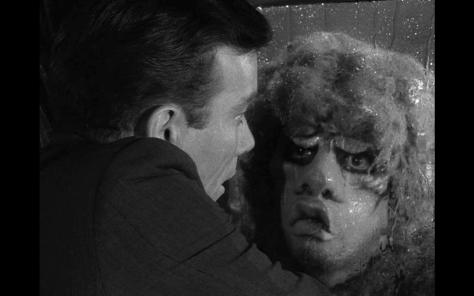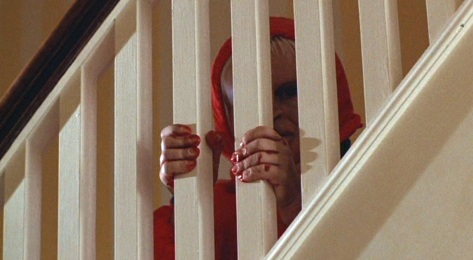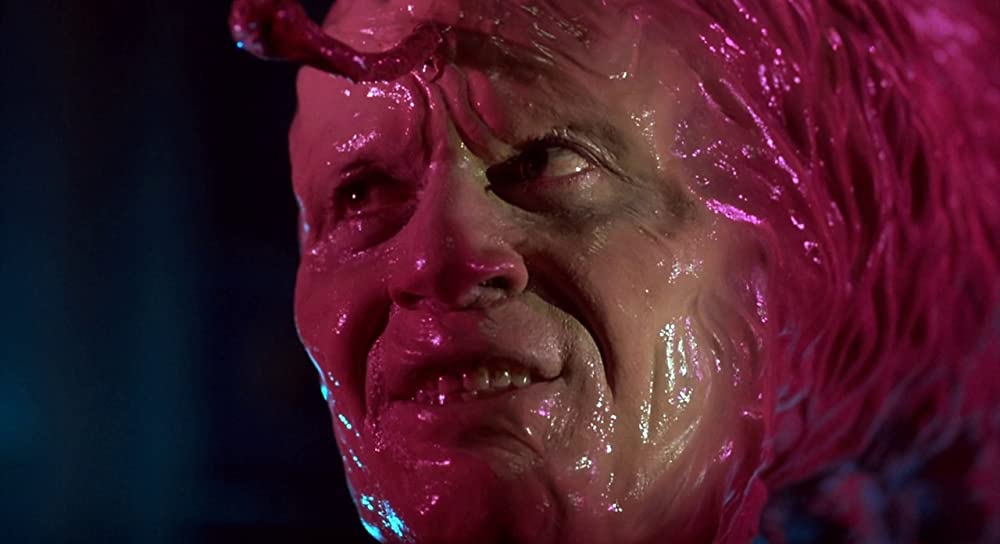

While a TV anthology series like The Outer Limits gives me enough classic monster-based material to be featured in an entire series of posts, its more famous contemporaneous counterpart, The Twilight Zone, did not dip into that well frequently enough to justify a similar treatment. However, among the few times Rod Serling’s influential fantasy vehicle did feature a monster story, it ended up being one of the most famous monster stories of recent memory, remade, parodied, and referenced endlessly for decades. That seems like a fair trade-off.
Originally airing on October 11th, 1963 (less than two weeks after The Outer Limits’ “The Architects of Fear”) as part of the series’ fifth and final season, “Nightmare at 20,000 Feet” is one of those stories that ingeniously finds a way to make a monster attuned to the terrors of modern life—not just in its choice of setting, but in the anxieties that the setting provokes in people. That’s not as easy as it sounds, and one of the reasons you know that this one succeeded, tapping into something truly universal, is that its story is still completely understandable, if not relatable, sixty years later. While lots of little things about the miraculous and terrifying reality of commercial air travel have changed significantly over the years, in the end there’s still the stark reality that we’re stuck in a claustrophobic tube with no exits, and there is only a few layers of glass and metal that separates you from an unfathomable height. It doesn’t take much for a traveller to remember all the things that can go wrong there, realizing that technology can be as fragile as the frayed psyches entrusting their lives to it.
Continue reading The Twilight Zone – “Nightmare at 20,000 Feet”




